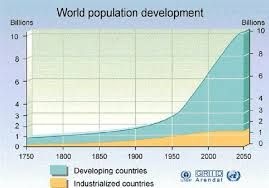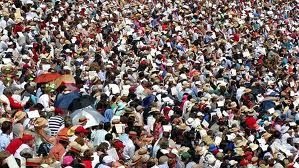
One major problem that faces the world today is the rapid growth of population, often referred to as population explosion. Until about 800 AD the world's population stayed below 200 million. Since then it has risen dramatically. The rise has been greatest in the 20th century. The population has recently risen to about six billion; it is three times as large as it was in 1960. It is not so much the actual population as its rate of increase that is alarming rather appaling. Experts predict that by 2020 there will be about ten billion people causing serious problems of hunger death, overcrowding and environmental pollution.

This enormous increase of population is due to better food, better hygiene and above all, the advance made in medicine. Rapid developments in modern medicine have conquered many disease and consequently the death rate has decreased especially at the time of baby birth both for the mother and the new comer. Until the beginning of the 19th century most people died before the age of 50. Today in developed countries the average lifespan has risen to more than 70 years. The population goes on increasing at an alarming rate in spite of the practice of birth control in many parts of the world. Thomas Maithus, a British mathematician and economist, went to the extent of declaring that, if unchecked, human population would grow in geomatric progression (i.e. 1, 2, 4, 8 and so on) while food production could only grow in arithmetic progression (i.e. 1, 2, 3, 4 and so on). He was, of course, very pessimistic.

With a population of over one billion, India is the second most populous country in the world. (China is the first). India's population has risen drastically since 1950; the population today is 2-1/2 times as large as it was in 1950. It is rising by 2.9 per cent per year, and in consequence, every year an extra 26 million people have to be provided for.




